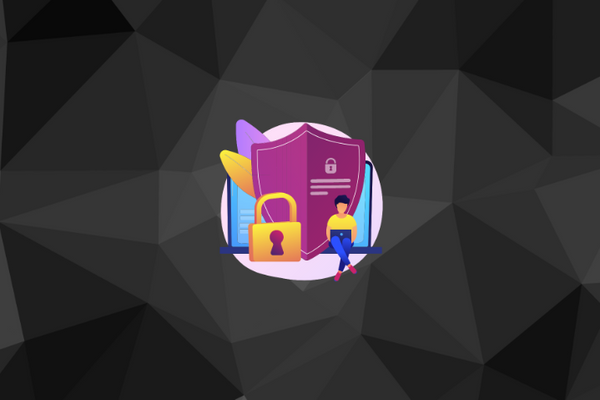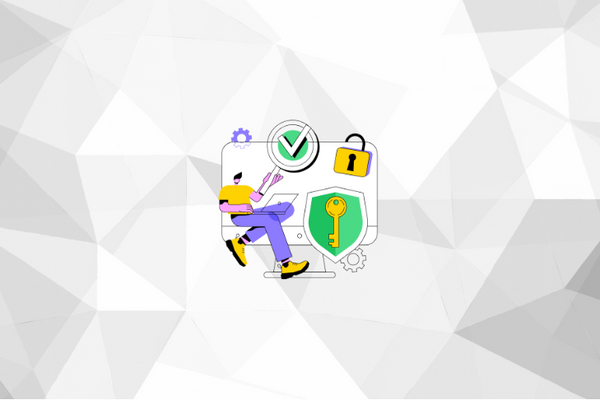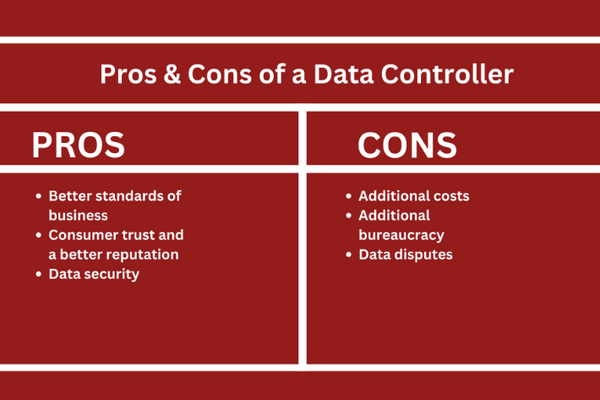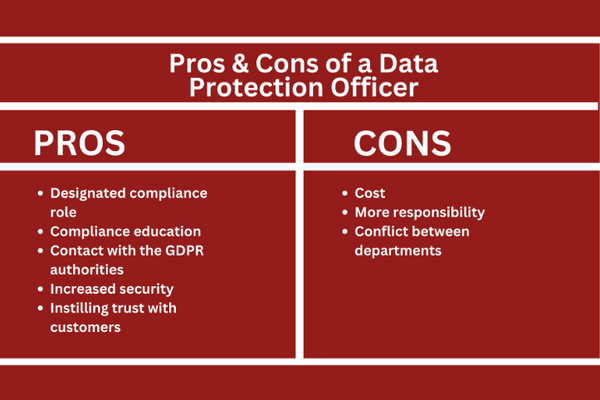
The General Data Protection Regulation has a wide scope of authority. If your business falls under its regulation, you are likely familiar with the terms data controller and data protection officer.
But what is the difference between the data controller vs data protection officer roles?
This article will cover the two roles in detail and explain why they are important to your business.
What is a Data Controller?

The General Data Protection Regulation (GDPR) defines a data controller as a business, person, agency, or body that collects, manages, and is responsible for the consumer data it holds.
Nick Henderson-Mayo, Director of Learning and Content at VinciWorks, expands on the definition by saying:
“A data controller is just about any business that collects, stores and decides on the use of personal information from customers or members of the public.
There are only a few exceptions when a company is not a data controller. For example, if they only hold on to the personal information of their employees in HR records, for instance, they might get away with not being classed as a data controller. But generally, most companies that have customers or suppliers will be data controllers.”
The term data controller describes the role and responsibility of controlling data. It’s often the business itself, or it could be one specific person or part of your business appointed as the data controller. The responsibilities of a data controller can include the following:
Collecting consent: Data controllers are responsible for collecting consumers’ consent before collecting their data/personal information. Consumers must also be allowed to withdraw their consent. A good example is cookie consent, which must include an accept and deny option for all consumers.
Secure storage: After collecting consumer data, data controllers are responsible for its secure storage.
Provide access: Data controllers must provide consumers access to view the collected data. This may also be done by the data protection officer.
Other data protection regulations, such as the CPRA, include similar responsibilities for businesses that handle and collect consumer data.
What is a Data Protection Officer?

Nick says:
“A data protection officer (DPO) is the designated individual in an organisation tasked with upholding data protection laws. GDPR requires many businesses to appoint a DPO.
It’s important to remember that the DPO acts to police data activities internally and uphold and protect the rights of data subjects. While the DPO will likely be a staff member (although external DPOs can be appointed), they focus on protecting people’s information.”
The GDPR imposes a rule on businesses that collect and store data for a high volume of consumers or that process sensitive data. If your business meets this criteria, you will be required under the GDPR to appoint a data protection officer (DPO).
A data protection officer is an individual or individual responsible for ensuring your business’s corporate compliance with the GDPR. Their responsibilities can include:
Training programs: A DPO will oversee training and education programs to teach your employees about important compliance procedures and policies.
Audits for non-compliance: A DPO can identify weaknesses and non-compliance risks in your business’s operations by performing audits and risk assessments.
Records and reporting: The DPO is responsible for keeping a detailed history of your business’s data processing activities and their purpose. They are also in charge of reporting to the GDPR authorities to demonstrate your business’s compliance.
Inform consumers- Another responsibility of the DPO is informing consumers what data, how, and why it is being used/sold. A DPO will typically create a privacy policy or another informative tool to let consumers know their rights and your data processes in detail.
Data Controller vs Data Protection Officer
These two roles have their fair share of similarities, so understanding their differences can be challenging. However, your business needs to distinguish and allocate the roles effectively. The most important differences to understand are as follows.
Compliance Obligations
The first important to note is the difference in obligation under regulations like the GDPR.
As a data controller, you are responsible for complying with the GDPR data privacy rules and are subject to penalties if found to be non-compliant. It is typically advisable to hire a data protection officer to meet these compliance obligations.
The role of a DPO is to ensure your business remains compliant with the GDPR, but the position itself is not held responsible under the GDPR compliance framework (although it may be held responsible in other laws).
Your business will ultimately still be liable for data breaches and insufficient policies if the data protection officer messes up.
Role in Your Business
As a business that collects, stores, and processes data, you are responsible for it. Your business is a data controller. Employees who work with the data are simply a part of your business’s compliance as a data controller.
The role of a DPO is only one person or part of your business. It is important to make this distinction to understand your business’s responsibility as a data controller.
Your business or DPO may hire a third-party compliance service to help process data. However, the DPO and service will not be responsible for the data since your business is the data controller.
Reporting to the Regulatory Authorities
The final distinction is the DPO‘s relationship with the GDPR authorities. Your business must comply with the GDPR as a data controller, but your DPO is responsible for proving your compliance with the GDPR.
A DPO will be in regular contact with the regulatory authorities. They will remain updated on requirements and showcase your business’s commitment to compliance.
It is essential to recognize the importance of the DPO’s role when hiring. Your business wants to be sure that the DPO you hire can prove your compliance and remain current with all GDPR requirements.
Pros & Cons of a Data Controller

Being a data controller subject to the GDPR and other related data regulations has benefits and downsides. You can decide how you want to move forward with your business by considering both.
Pros:
Better standards of business: As your business is subject to compliance with the GDPR, it will be held to a higher standard. Better management, training, regular risk assessments, and data security measures will increase the overall quality of your business’s operations.
Consumer trust and a better reputation: Your business will grant consumers more data subject rights over their personal information. This can gain consumers’ trust and boost your reputation by increasing visibility and being transparent about your processes. Consumers will be more inclined to trust your business when it has nothing to hide and allows them to make their own choices.
Data security: Under the GDPR, your business will also be tasked with higher standards for handling and secure storage of data. This will increase your business’s security measures and is another way to gain consumers’ trust and a competitive edge.
Cons:
Additional costs: The GDPR will require finance from technology, staff training, and development, as well as more efficient internal processes. This could be a strain on your resources if you are not prepared for this with an appropriate budget plan in advance.
Additional bureaucracy: You may find it difficult to keep up with the GDPR’s requirements as they are regularly updated and changed, particularly unless you have extensive experience with regulatory frameworks. This could lead to additional paperwork, campaigns, and processes, further damaging your resources unless you outsource the task or appoint an in-house team member dedicated solely to this duty.
Data disputes: If your business is not compliant with the GDPR, you may face significant financial penalties and be issued mandatory requests to enforce certain changes. This could disrupt or even damage relationships between customers and stakeholders in the process.
Pros & Cons of a Data Protection Officer

If your business meets certain criteria, you may be required to appoint a DPO under the GDPR. Since you have no choice in the matter, the pros and cons of the role are very concrete.
You can prepare and adjust as necessary by learning about them beforehand.
Pros:
Designated compliance role: The first benefit of hiring a DPO is that you will have a role completely dedicated to your business’s compliance. The DPO will be in charge of your business’s education, training, audits, and compliance procedures so that you can direct your attention elsewhere.
Compliance education: A DPO will typically integrate an education program through training or policies encouraging employees to learn about the GDPR’s requirements. A business-wide education will ensure compliance, teach employees about better business practices, and create a safer environment.
Contact with the GDPR authorities: A DPO is a direct contact point with the GDPR authorities, so your business will have direct insights when implementing a compliance program. With straightforward contact, you will have clarity on regulations and areas your business could improve.
Increased cyber security measures: A DPO will help businesses with the data protection impact assessment. They have the expertise necessary to continually refine how and where personal data is stored to reduce the potential risk of a data breach.
Instilling trust with customers: By having a qualified professional taking charge of data protection, customers can trust the business to protect their personal information and that any issues will be addressed swiftly. This is important from an ethical perspective and a competitive advantage for businesses to stand out against their competition.
Cons:
Cost: If you don’t have a need for it, the expenses of appointing and training your DPO can be high. The time spent finding and educating them could also take away from other aspects of your business.
More responsibility: Appointing a DPO will also add additional responsibilities to the position, as they need to be fully knowledgeable and up-to-date on GDPR regulations and due diligence while still managing other tasks such as data audits or training. This could lead to increased pressure on the role or unforeseen issues in case of a changeover with no replacement.
Conflict between departments: A small business may have separate departments already in charge of data protection or IT security measures. When a DPO is appointed, they’ll manage the whole business’s data protection, which could create conflict between departments.
FAQs
Is data protection officer same as data controller?
No, a Data Protection Officer (DPO) and a Data Controller are not the same. A DPO is an individual appointed by organizations to ensure that they comply with data protection laws such as GDPR. The DPO’s responsibilities include educating employees about compliance requirements, conducting audits to ensure adherence, and acting as the primary contact for supervisory authorities. On the other hand, a Data Controller refers to a legal entity or person who determines how and why personal data will be processed according two legal guidelines. They have ultimate responsibility regarding personal information under their control – this includes ensuring relevant protections in place.
Can a data controller also be the data protection officer?
The data protection officer is a position that works for a business acting as a data controller. A data controller can be an entity, group, or business, while the data protection officer is just one role inside that business.
What is the difference between a data controller and a processor?
A data controller collects and stores data and is responsible for that data. However, a data processor only collects and stores the data, but the responsibility belongs to a third party outside the data processor.
Do you need a data protection officer as a data controller?
The GDPR dictates that your business must appoint a data protection officer if it monitors consumers and collects and stores their data on a large scale.
Do I need to be registered as a data controller?
Yes, your business must register as a data controller with the Information Commissioner’s Office (ICO) if you process the personal information of UK residents and are applicable to the UK GDPR.
How much can data controllers be fined?
Data controllers can be fined up to 20 million euros or 4% of their total revenue if it exceeds 20 million euros with GDPR fines. Other fines may apply if non-compliant with other laws.
How Can Captain Compliance Help You?
Your business most likely requires a data protection officer to provide compliance education, training, and assessments for your company.
Luckily, Captain Compliance offers the highest quality yet most affordable outsourced data protection officer services for your business.
Want to ensure your business is compliant? Get in touch for a 100% free consultation now.